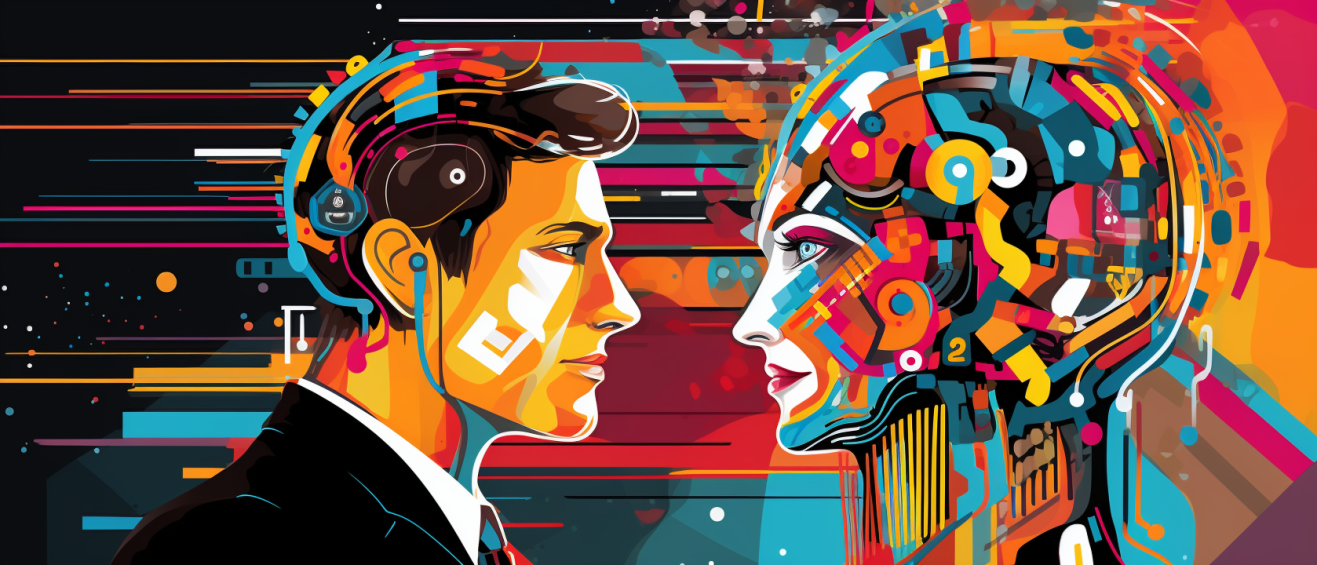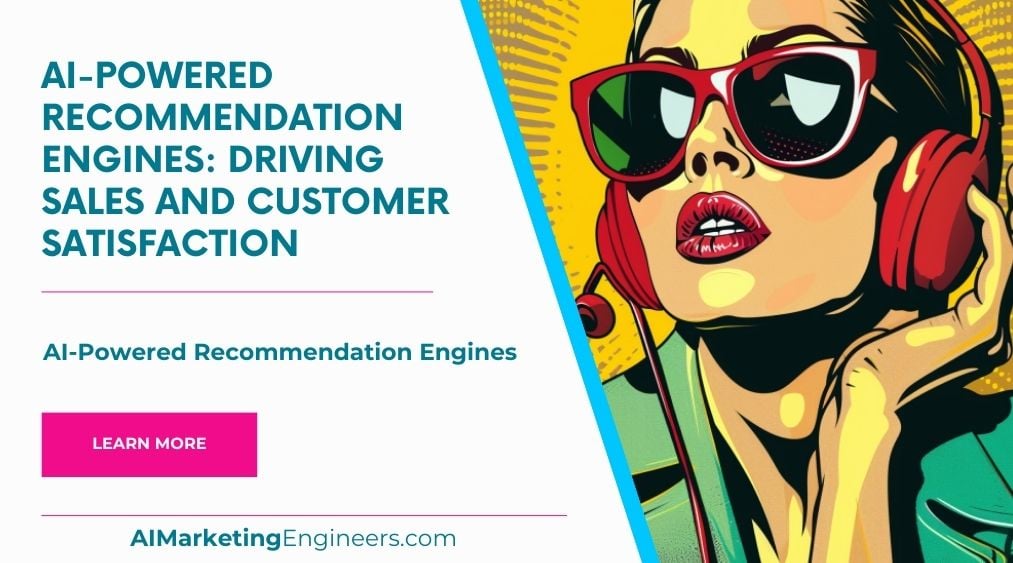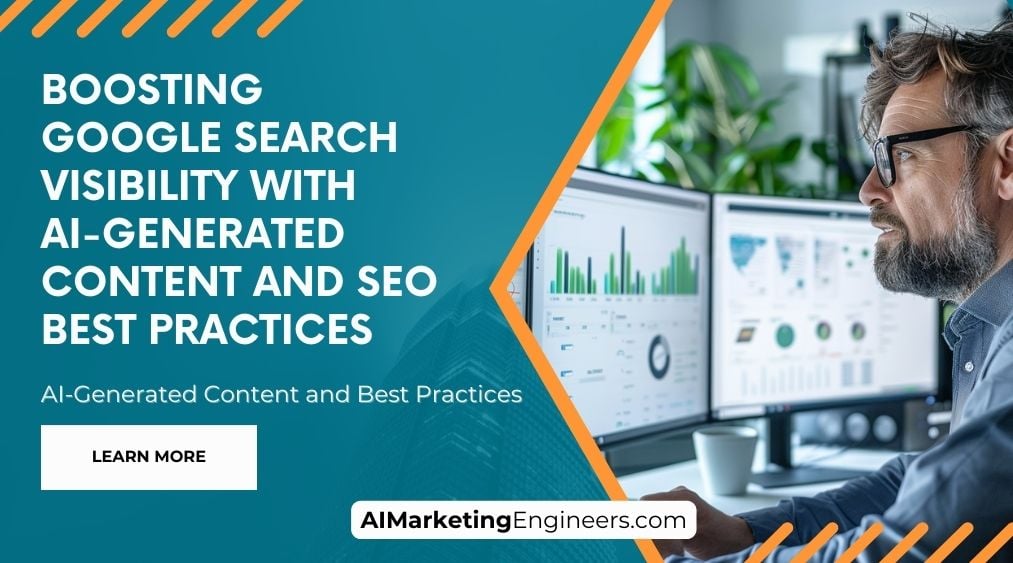Key Takeaways
✅ Personalization: AI-powered recommendation engines are your secret weapon in creating that 'just-for-you' feeling for your customers. Imagine their delight when they find exactly what they're looking for—without searching for it! Stats show customers are more likely to buy—and come back—when they receive personalized recommendations. Get ready to watch engagement soar and your sales climb!
✅ Data-driven Insights: These engines aren't just smart; they're like having a super-powered sales analyst on your team 24/7. By crunching numbers and spotting patterns in customer data, they give you the know-how to tailor your inventory, adjust your prices, and fine-tune your marketing—turning insights into income.
✅ Continuous Improvement: Think of it as evolution in fast-forward. With more data, these recommendation engines just keep getting better—smarter suggestions, happier customers, and a sales graph that keeps on climbing. It's not just about staying in the game; it's about outsmarting the competition at every turn.

Introduction
Ever wondered how some businesses seem to read their customers' minds? They always know just what to offer, drawing folks in like magnets. That's the magic of AI-Powered Recommendation Engines—the game-changer in boosting sales and customer satisfaction. But how do they work? And more importantly, how can you use them to revolutionize your business?
Beginnings with a sprinkle of history, these engines have come a long way, transforming how companies interact with customers. Today, they're about to take you on an unforgettable journey through the world of algorithms, data analysis, and machine learning. Stick around, and you'll discover how smart technology can lead to smarter sales strategies and positively ecstatic customers.
In this article, you'll get an insider look at innovative ways to skyrocket your revenue and ROI. We're talking modern trends that are reshaping the marketplace and practical solutions that maximize returns while keeping your customers coming back for more.
Prepare to unearth actionable insights and groundbreaking information that will shift the way you see your business and your customers. It's time to harness the potential of AI-powered engines - are you ready for the ride?

Top Statistics
| Statistic | Insight |
|---|---|
| Market Size & Growth: The global recommendation engine market was valued at $2.3 billion in 2020 and is expected to grow at a CAGR of 29.3% from 2021 to 2028. (Source: Grand View Research) | This explosive growth showcases the burgeoning potential and the increasing reliance of businesses on AI-driven personalization techniques. |
| Impact on Sales: AI recommendation engines can boost sales by 5-15% with personalized product suggestions. (Source: McKinsey & Company) | Personalized recommendations are not just a neat feature; they're a powerful tool to drive sales upward. |
| Amazon's Revenue: 35% of Amazon's revenue is generated by its recommendation engine. (Source: Forbes) | Amazon's success story is a clear signal: getting recommendations right can carve out a significant portion of your revenue! |
| Customer Loyalty: 91% of consumers are likely to shop with brands offering relevant deals and recommendations. (Source: Accenture) | This statistic offers a peek into the customer's mind, revealing a strong preference for brands that understand their needs. |
| Demographics: 63% of millennials prefer to purchase from brands with personalized experiences. (Source: Epsilon) | Targeting younger demographics? Personalization isn't just an option; it's the key to their hearts and wallets. |
Understanding AI-Powered Recommendation Engines
Have you ever wondered how sites like Amazon and Netflix seem to know what you want before you do? AI-powered recommendation engines are the secret sauce to that mind-reading act. So, what are they? Simply put, they are smart systems that sift through heaps of data to suggest products or content tailored just for you. Their main job is to keep you happy and engaged, so you stick around longer and, yes, end up buying more.

The Journey of Recommendation Systems
Let's hop into the time machine for a moment. The idea of recommending stuff to people isn't new, but how it's done has changed a ton over the years. In the past, it was as simple as one friend telling another, "Hey, you might like this." Now, we have complex algorithms doing that job, but the idea remains the same—steering you towards stuff you're likely to enjoy. In the early days, these systems were pretty basic, but with advances in technology, especially artificial intelligence (AI), they've gotten really good at understanding your tastes.
How Do These Engines Work, Anyway?
Peeking under the hood of an AI-powered recommendation engine is like looking at a web woven by a very methodical spider. At its core are algorithms - rules that computers follow to solve problems. For you to get that perfect movie suggestion, these engines use techniques like collaborative filtering (think of it as asking your neighbors what they like), content-based filtering (more like getting suggestions based on what you've liked before), and hybrid approaches that mix the two. They take in your past behavior, mix it with the behavior of others, and voila, out come your recommendations. But for all this to work, they need data. Heaps and heaps of it. From what you click on to how long you spend looking at something, every bit helps the system get smarter.

Driving Sales with Smart Suggestions
There's something irresistible about a good recommendation. It's like the engine is whispering to you, "You know you want it." And often, you do! By understanding what you're likely to buy, recommendation engines boost customer engagement and the chance of making a sale. They're masters at showing you other stuff you might need - cross-selling and upselling. Maybe you're buying a camera; how about a fancy lens to go with it? And when they're really smart, they show you things at just the right time, upping the odds that you'll hit 'buy.'
The Secret to Happy Customers
Remember getting a birthday card picked just for you? That's the feeling AI-powered recommendation engines aim for. A personalized shopping experience can make all the difference. It's all about keeping you coming back for more, fostering customer retention and making sure your needs and wants are met with uncanny accuracy. When you feel understood, you're more likely to stick around, and that's a win for everyone.
Overcoming the Hurdles
For all their wizardry, these recommendation engines face some tough challenges. Top of the list is data privacy—no one likes feeling spied on. And there's the issue of living in a bubble. When a system only recommends what you've liked before, you might miss out on something new—finding that balance between the familiar and the surprise is a delicate dance. Plus, you have to trust the system to use our data respectfully and responsibly.

Peering Into the Crystal Ball of AI Recommendations
Imagine chatting with your smart speaker and it understands not just your words but your feelings. Advances in natural language processing and sentiment analysis could take personalization to whole new levels. As these engines get even smarter, they'll likely become buddies with the latest tech like voice assistants. But with great power comes great responsibility, so ethical use and potential regulations are also part of the future talk.
AI Marketing Engineers Recommendation
Recommendation 1: Personalize Your Customer Journey: Dive into the data that your AI-powered recommendation engine is collecting. Pay close attention to how customers interact with the recommendations. Are they clicking? Are they buying? Use this data to further personalize the customer journey. Ensure that the recommendations evolve based on user behavior, preferences, and even the time they spend looking at certain products. Remember, the more tailored the shopping experience, the more likely you are to see those sales numbers climb.
Recommendation 2: Leverage AI to Boost Customer Satisfaction: Embrace the current trend of creating a conversational experience by integrating your AI-powered recommendation engine with chat and voice assistants. This brings a personal touch to online shopping, almost like talking to a helpful store associate. By guiding customers through their purchase in real time, answering questions, and making suggestions based on their responses, you help them feel understood and appreciated, reinforcing their satisfaction and loyalty.
Recommendation 3: Incorporate Cross-Channel Recommendations: Utilize a tool that extends the functionality of your AI-powered recommendation engine across different channels – think email marketing, social media, and even in-store experiences. What works well on your website can also enhance the user experience in a marketing email or a social media ad. This seamless experience not only reinforces your brand’s messaging but shows your customers that you really know them, no matter where they are. Plus, it can be a game-changer in creating a cohesive and satisfying shopping experience.

Relevant Links
Maximize Your Affiliate Marketing Success in 2024
Maximize Your Earnings: Affiliate Marketing Secrets Revealed!
The Future of SEO: Expert Strategies for 2024
Dominate Search Engines: Winning SEO Techniques for 2024
Unlocking Customer Insights with AI-Enhanced Marketing
Redefine Customer Engagement: AI-Driven Marketing Insights
Google Ads Revolutionized: Enter the Era of AI Copywriting
Revolutionize Your Google Ads: AI-Powered Copywriting Magic
Conclusion
So, what's the big picture when it comes to these AI-powered recommendation engines? I bet you're wondering whether they really make that much of a difference. Well, think about the last time you shopped online and found exactly what you wanted, almost as if the store knew you personally. That's the magic of these engines at work. They're like your personal shopping guides, making sense of endless choices and pinpointing what fits your taste and needs.
But, it's not just about making shopping easier. These engines are serious players in driving sales and ramping up the satisfaction levels of customers like you and me. They're the secret sauce helping businesses to showcase the right products to the right people at the right time. And it's a win-win because businesses see their numbers climb, and we find our new favorite things without the hassle.
Now, I know what you're thinking. How about our privacy and those annoying ads that follow us everywhere? Yes, there's a fine line between personal and intrusive, and it’s something the tech world is continuously working to balance—respecting our personal space while still being helpful.
Despite these challenges, AI in recommender systems is just getting started. We've seen them evolve from simple "customers who bought this also bought" prompts to deeply understanding our language and emotions. The future? It's looking even smarter with voice assistants and who knows what else becoming part of the equation, all in a bid to keep us happy and coming back for more.
So, as we keep an eye on the horizon, let's not forget the power of these tools. They're here to reshape the shopping experience, making it more personal, intelligent, and, honestly, a bit more human. Who knew algorithms could be so empathetic?
Are you ready to see what they recommend for you next? Because, like it or not, AI-powered recommendation engines are changing the game, and they're here to stay.

FAQs
Question 1: What is an AI-powered recommendation engine?
Answer: An AI-powered recommendation engine is a smart tool that suggests products or content that you might like, kind of like a personal shopping assistant that knows your taste. It learns from what you've been up to—what you buy, what you click on—and it gets better at helping you the more you use it.
Question 2: How do recommendation engines improve customer satisfaction?
Answer: Imagine walking into a store and finding everything you love on the first shelf. That's what these clever systems do online. They cut down the hunt, show you stuff that you'll probably dig, which makes the whole shopping experience a breeze—and that usually leaves customers feeling pretty great about it all.
Question 3: What are the key components of an AI-powered recommendation engine?
Answer: To build one of these smart recommenders, there's a bunch of ingredients you need: gather info, clean it up, make sense of it, pick the right math wizardry to crunch the numbers, teach the system the ropes, and then make sure it's not messing up. Oh, and you've got to show the suggestions to folks and listen to their feedback, so the next round is even better.
Question 4: What are the common types of recommendation algorithms?
Answer: Just like there's more than one way to make a sandwich, there's a bunch of recipes for recommendations—some focus on what similar folks dig, some look at what's cool about the stuff you like, and some mix it up. And then there's the brainy deep learning kind that tries to think like us to figure it out.
Question 5: How does collaborative filtering work?
Answer: Think of it like this: If you and your buddy both like the same movies, and your buddy raves about a new flick you haven't seen, you'll probably want to check it out, right? Collaborative filtering is the techie way of doing that, hooking you up with things that people like you enjoy.
Question 6: How does content-based filtering work?
Answer: This one's like having a friend who knows everything you like, down to the nitty-gritty details, and finds new things that have all those same little details. It's not about what others think; it's all about what makes the stuff you like, well, likeable to you.
Question 7 : How can recommendation engines drive sales?
Answer: By being helpful and showing you stuff you're likely to pick up, these engines can smooth-talk you into buying more. They might even show you cool things that go well with what you're getting—like suggesting a stylish belt to go with the new pants you're eyeing.
Question 8: How can businesses use recommendation engines to improve customer retention?
Answer: These engines keep customers coming back for more by keeping things fresh and relevant each time they visit. By throwing in occasional perks and deals that feel like they're just for you, customers are more likely to stick around.
Question 9: What are the challenges in implementing an AI-powered recommendation engine?
Answer: It's not all smooth sailing. You need a bunch of good quality data, picking the right algorithm is a head-scratcher, making it all work fast is tough, and you've got to keep it all on the up and up so that people's private stuff stays private.
Question 10: What are some best practices for AI-powered recommendation engines?
Answer: To get it right, you've got to start with the good stuff—clean, solid data. Pick the best math for the job, keep checking back to avoid any hiccups, and make sure you're always listening to feedback. And don't forget—being clear, fair, and above board with users is key to winning their trust.

Academic References
- Aggarwal, C. (2016). Recommender Systems for E-Commerce. Springer. This book offers a comprehensive look at how recommender systems are shaping e-commerce. It delves into the critical role of personalization and how understanding the user can lead to better sales and happier customers.
- Aggarwal, C. (2015). Recommender Systems Handbook. Springer. In this extensive guide, we explore the nuts and bolts of recommender systems. Think about all those suggestions you see when shopping online – this book explains the sophisticated tech behind them, like collaborative filtering and how AI is making customers smile more and click that 'buy' button.
- Aggarwal, C. (2016). Recommender Systems: An Introduction. Springer. Ever wondered how your favorite shopping site seems to read your mind? This book introduces the magic behind recommender systems, the challenges they face, and their importance in keeping shoppers hooked and businesses booming.
- Fan, Y., Xiao, B., Ye, M., & Wang, G. (2014). Recommender Systems and the Effects of Personalization on Consumer Decision Making. Journal of Business Research, 67(8), 1571-1579. This study takes a deep dive into how personalization touches our choices. It raises the big question – do these AI systems really know what we want and can they be trusted?
- Aggarwal, C., & Reddy, C. (2016). Recommender Systems: The Textbook. Springer. A must-read if you're curious about the engines driving sales up and creating satisfied customers. This textbook breaks down the world of AI recommendation - from how it knows what you might like, to why it matters in the digital shopping experience.






